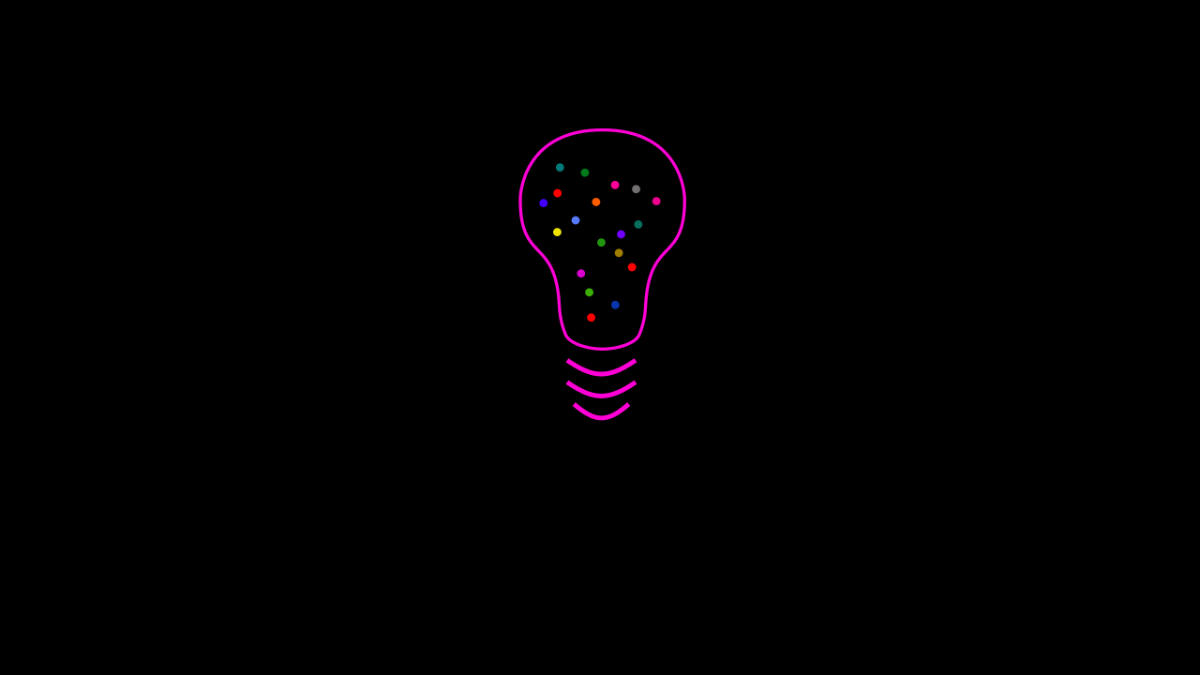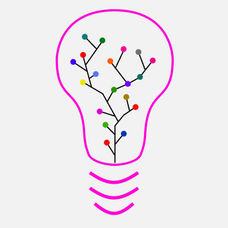The Power of Modern Knowledge Management for Business Professionals
Unlock your business potential with cutting-edge knowledge management strategies for enhanced productivity and decision-making

Boost Your Productivity and Retention with Modern and Effective "Note-Taking" Strategies.
The wheels of innovation keep spinning faster and faster. The ability to capture, organize, and leverage information effectively is key to avoid feeling overwhelmed, stay on top of everything, and become actual top performers.
In this article, I want to convince you that that poor note-taking leads to tons of missed opportunities, and that Knowledge Management, combined with modern AI tooling are pivotal to help you reach your full potential (no kidding!). This article is NOT about how to organize teams or companies knowledge. It's about YOU, how you organize your work, how you learn and capture insights. Because it all starts there. Before you can contribute to an intelligent organization, you need to be an organized individual. And it starts with Personal Knowledge Management.
The Hidden Cost of Poor Note-taking
Many professionals still rely on scattered notes across various platforms, leading to lost insights and missed opportunities: Word documents, presentations, e-mails, excel sheets, memos, isolated wiki pages, etc. The information is disconnected, lacks organization, and most of it gets lost or forgotten.
Consider this: How much time do you spend each week searching for information you know you've encountered before? Research suggests that knowledge workers spend up to 2.5 hours per day searching for information. That's roughly 25% of your workweek lost to inefficient information management.
This inefficiency has a significant impact on productivity, because knowledge workers spend hours each day searching for information.
Those who don't leverage Knowledge and Information Management techniques waste an insane amount of time.
The cost of poor note-taking extends beyond just time. It also affects decision-making, creativity, and career growth.
And when considering organizations, it's even worse. Tons of organizations are slowed down by disorganized employees and managers, leading to poor productivity, low-quality results, and worse. People come to meetings unprepared, they forget everything, don't know what they should be doing, don't communicate the right information at the right time, etc.
The Power of Daily Notes for Business Professionals
Incorporating journaling and daily notes into your Personal Knowledge Management system can be particularly valuable. Daily notes serve as a powerful tool for reflection, tracking progress, and maintaining focus on your personal and professional goals.
And not, it's not necessarily about holding a sentimental diary. Daily notes can be your command center. They can serve as a compass, bringing clarity, and simplifying ideas/information/knowledge capture and organization. That's step number one toward being in control.
I like to think of journaling as the perfect entry point into growing a Knowledge Management practice.
Benefits of Daily Notes for Business Professionals
Daily notes have many benefits that should not be ignored:
- Idea Capture: Quickly jot down business ideas, process improvements, or market insights throughout the day.
- Progress Tracking: Document achievements, challenges, and lessons learned to maintain a clear view of your journey and growth.
- Decision Log: Record important decisions and their rationale, creating a valuable reference for future strategic planning and performance reviews.
- Emotional Intelligence: Use daily notes to reflect on your interactions, opportunities for improvement, and grow.
- Pattern Recognition: Over time, daily notes help identify recurring themes, trends, challenges, and opportunities in your work and life.
- Never forget anything: Become and feel more reliable than ever.
With a journal, you can record everything you need in an instant, without having to think about where to go. You can capture meeting notes, decisions, actions, work through challenges, and THINK more deeply about the problems you're facing. You can also plan easily, track progress, start your days with clear priorities, and end those with reflection.
When thinking about career growth, journaling is also valuable. It can help you make concrete plans for your career, make progress toward your goals, track your achievements so that you have weapons at your disposals when asking for a raise, or trying to get a new job.
And that's just the tip of the iceberg. I've covered many more benefits in previous articles:
- https://www.dsebastien.net/2021-10-07-periodic-journaling-part-1/
- https://www.dsebastien.net/2021-10-07-periodic-journaling-part-2/
- https://www.dsebastien.net/how-i-use-daily-notes/
- https://www.dsebastien.net/why-all-solopreneurs-should-write-a-journal/
- https://www.dsebastien.net/meeting-with-yourself/
Journaling vs learning
My journal is the entry point of my knowledge base, and thus it is central to my learning. Everything I think about, discover, research, explore, and learn about ends up in my daily notes. From there, I can synthesize the information, organize it, connect it with prior knowledge, and develop insights. This not only helps bring clarity, but also makes it a breeze to learn from first principles, connect ideas coming from different fields. This leads to valuable insights, and helps with creativity and innovation.
Implementing Daily Notes
Convinced yet? I sure hope so!
The good news now: getting started with journaling is pretty straightforward 🎉
- Set aside dedicated time each day for journaling, preferably at the beginning or end of your workday. It doesn't have to take long. You can start with 5-10 minutes a day.
- Use a consistent structure to make it easier to review and analyze your notes over time. Keep things simple (check out my template for an example)
- Link your daily notes to other relevant notes in the rest of your Knowledge Management system. That way, your daily notes will serve as anchors for everything you have captured
For a detailed guide on how to approach journaling as a business professional, you can adapt the principles outlined in this article: https://www.dsebastien.net/how-to-approach-journaling-as-a-founder

By integrating daily notes into your Knowledge Management practice, you create a powerful tool for personal and professional growth, strategic thinking, and maintaining clarity amidst the complexities of your work life. Whether you're a manager, team leader, individual contributor, or aspiring entrepreneur, daily notes can significantly enhance your effectiveness and career progression.
This approach to daily note-taking aligns with the broader benefits of Personal Knowledge Management, including faster learning and retention, improved creativity, enhanced decision-making capabilities, better personal organization, and reduced cognitive load. It's an essential practice for any business professional looking to stay competitive and continuously improve in today's fast-paced business environment.
By the way, the [[Obsidian Starter Kit]] that I've built also includes everything you need to get started in a jiffy.
Useful links:
- My daily note template and rationale here: https://www.dsebastien.net/my-daily-note-template-in-obsidian/
- Why linking knowledge to time is beneficial: https://www.dsebastien.net/knowledge-through-time/
Journaling and periodic reviews
My favorite companion activity to journaling is performing periodic reviews. Those help me look back and forward at regular time intervals: every day, every week, every month, etc.
The idea is simple: book a meeting with yourself at regular intervals. When the time comes, look at the notes of the past period and think about what you've achieved, what went well, what went wrong, why, and how to improve the status quo. Then, look ahead, and think about what to focus on next. What needs your attention, what do you need to do, etc.
Periodic reviews enable deep reflection about the past, and help plan ahead. This leads to CLARITY and PROGRESS.
In addition, periodic reviews are great opportunities to integrate new knowledge with the rest of your knowledge base. For instance, to consolidate lessons learned, best practices, processes, new ideas, etc.
Check out the following article to learn more: https://www.dsebastien.net/2022-05-16-periodic-reviews/

Beyond Basic Note-taking: The Knowledge Management Revolution
Modern note-taking isn't just about recording information—it's about building a Personal Knowledge Management system that:
- Connects ideas across different projects and domains
- Surfaces relevant information when you need it
- Transforms scattered notes into actionable insights
- Accelerates your professional learning curve
- Enhances decision-making through better information organization
As I said, I consider journaling to be the perfect entry point. But you can go much further, and create much more leverage for yourself. Especially with the rise of more powerful AI systems. More on this point later!
That's why I always keep something to write close-by while working. So that I can capture everything that matters.
The Professional Edge of Personal Knowledge Management (PKM)
In my life as a Knowledge Worker, Knowledge Management is the central piece of the puzzle. It's at the very center of everything I do.
And I strongly believe that Personal Knowledge Management (PKM) can be an enabler for more people to become successful professionals.
It helps business pros:
- Organize their work: Plan ahead, capture, etc
- Learn, Think, and Reflect
- Leverage their knowledge to achieve more
- Prepare for Meetings: Access all relevant information about clients, projects, and previous discussions instantly
- Make Decisions: Draw upon past experiences and collected wisdom quickly
- Generate Ideas: Connect different concepts to spark innovation
- Share Knowledge: Efficiently communicate complex information with team members
Why Traditional Note-taking Tools Fall Short
"Standard" note-taking apps and traditional methods often fail because they:
- Create information silos
- Lack powerful linking capabilities
- Don't scale well with growing information
- Make it difficult to find specific information quickly
In the information age, not being "on top" of information is an antipattern. It's just impossible to be and remain organized and effective if you don't learn how to "manage" knowledge at scale.
Many professionals remain stuck with the basics they've learned at school. Take basic notes on paper or in Word documents, send e-mails, etc. They fail to see the opportunities in front of them. It's an education problem, and that's why I'm spending so much energy on sharing ideas about Knowledge Management.
Traditional note-taking is only focused on the short-term, usually the current work day or week. It's not about capturing, organizing, and leveraging knowledge for long-term leverage. And it's quite sad.
For students, the perfect example is study notes. Students take notes during classes, make summaries, memorize those, and just get rid of those once the test is done. Too bad, that knowledge will decay along with the neural pathways that aren't used anymore. After a short while, the notes are gone, the memories are gone, and nothing much remains. Almost everything we learn at school fades away. And people just use the same approach in their professional careers.
Take meeting notes. Most of the time, those simply don't exist. People join meetings, discuss for hours, leave, and forget everything. Few people take notes, few people capture insights, decisions, action points, etc. And even fewer people follow up.
People who know better take notes during meetings and make sure those get shared with the rest of the organization, not just the meeting participants. But true professionals know that this is just information management 101. The next level is to incorporate the insights into a broader and long-lived knowledge graph that will create leverage for a much longer period of time.
Obsidian: The Professional's Choice for Knowledge Management
To get started with knowledge management, you can use any tool you like. You can even store simple text files in a folder, and that will work. But if you want long-term leverage, then you should use a [[Tools for Thought (TfTs)|Tool for Thought (TfT)]]. That is, a tool make for managing knowledge.
There are HUNDREDS of apps you could be using. And I'm not here to argue about that. A varied world requires varied options. But I can tell you that I've explored MANY, and found one that works flawlessly for my own needs: Obsidian.
I've been a huge fan of Obsidian for the longest time. It's my command center, the place where I regroup most of my knowledge. Everything you see on my Website is part of my knowledge base in Obsidian: my newsletters, my blog articles, the products I work on, my ideas, my drafts, etc.
It's where I go when I have a new idea, when I want to think deeply, when I want to create content, when I want to plan my work, etc.
I've chosen Obsidian for various reasons that I've previously discussed here: https://notes.dsebastien.net/30+Areas/33+Permanent+notes/33.02+Content/Benefits+of+Obsidian
The main points:
- It's free
- It's FAST
- It works on different platforms (including mobile)
- Data is yours, forever (stored in Markdown, a plain text and open data format that hundreds of editors support)
- It has a ton of useful Knowledge Management features (probably more than you'll ever need)
- It's customizable and has a vast ecosystem
- The community is huge and AWESOME ❤️
Plus one more I'll tell you about in the next sections 🎉
Unlike traditional note-taking apps (e.g., One Note, Apple Notes, etc), Obsidian creates a networked thought environment where:
- Notes are interconnected through powerful linking capabilities
- Information is discovered through natural association
- Knowledge builds upon itself organically
- Ideas evolve and mature over time
It it, you can store notes, daily journal entries, meeting notes, personal goals, tasks, reference documents, and even audio recordings.
Last but not least, there are a gazillion plugins you can use to extend its functionality (more on this in the next sections).
The Game-Changing Obsidian Starter Kit
The challenge when getting started with Personal Knowledge Management is finding out how to actually ORGANIZE the knowledge. Should you create one or many folders? Should there be a strict folder structure or a loose one? Should you use tags? Should you create a folder for each type of note? What note types should exist? Should you isolate this or that? The list of system design questions is ENDLESS.
I've been there before, and I've spent hundreds of hours building and perfecting my own system. And I'm not alone. Countless people who join the Knowledge Management train end up doing the same. It's a HUGE waste of time:

If you take a look at the various PKM-related sub-reddits or social media, you'll find countless posts such as the one above. When I realized that, I wanted to help. Since my own system stabilized and helped me be more organized and productive, I figured that it could be useful to others. That's why I have created the Obsidian Starter Kit, which is basically a 1:1 copy of my own system. I've been using it for years, and it's now being used by almost 800 other people, most of which are happy about it, and can focus on more interesting things than designing a knowledge management system:

Why is the Obsidian Starter Kit valuable? Because it provides:
- Immediate Structure: A clear organization system accompanied by templates
- Proven Workflows: Tested systems for journaling, capturing meeting notes, managing tasks, tracking goals and progress, and more
- Quick Start Guide: Get productive within hours, not weeks
- Best Practices: Built-in conventions and recommendations
- Automation: Don't waste time filing notes. Let the system do that for you
Check out the homepage of the project to learn more: Obsidian Starter Kit

Leveraging AI with Personal Knowledge Management
In recent years, AI has evolved a lot, and changed many things, fast than most would have imagined. Today, Large Language Models (LLMs) such as Open AI's GPT, Anthropic's Claude, and others enable boosting productivity far beyond what was previously possible.
It all requires time and effort to learn, but truly changes the way we can all approach knowledge work. I have spent a ton of time exploring Large Language Models and used those in different contexts: for writing, for planning, for setting goals, preparing meeting agendas, presentations, programming, and more.
You probably all hear about AI and LLMs all day, so I'm not going to bore you to tears with this. I'll just say that if you're not using AIs in your daily work today, you are really missing out, whether you're a manager, a programmer, a technical team leader, a project manager or whatever else. AIs are here to stay, and they are already very potent. Don't miss this flight because it's going to leave many people behind. Don't be one of those.
One thing I want to mention here is that AIs are particularly valuable when combined with a Personal Knowledge Management system. If you have to re-set the stage about your goals, projects, past achievements, problems, etc each time you want to use AIs, you're wasting tons of time. Today, it's actually possible to combine Large Language Models with Knowledge Management tools such as Obsidian. This creates tons of leverage. For instance, as I'm writing this article in Obsidian, I can ask questions to Claude or GPT4o, which are integrated in Obsidian through a plugin called Smart Connections. I can also rephrase, expand, summarize, integrate other pieces of my knowledge base through auto-completion, thanks to another AI-centric plugin. And there's a lot more I can do thanks to this.
The combination of Large Language Models, Retrieval Augmented Generation (RAG), and Knowledge Management tools enable truly leveraging the information and knowledge you have centralized. And I'm convinced that this is going to be more and more valuable over time.
I'll write more about this in future articles.
Knowledge Workers Unite!
A last point in want to touch on for this article. About a year ago, I launched a project called the Knowledge Worker Kit. It's an infoproduct that focuses on Knowledge Workers (hence the name): creators, business professionals, founders, executives, leaders, project managers, etc.
Through that initiative, my goal is twofold:
- Create a really valuable knowledge base covering various aspects of Knowledge Work and sharing best practices
- Build a community of like-minded professionals to grow together
Over time, the Knowledge Worker Kit will cover:
- How to bring and keep clarity in your personal and professional life
- Habits, routines, systems, processes and methods to be more effective, without burning out
- How to manage your career and make powerful plans for the future
- How to learn (may sound stupid, but many people still learn the old-fashioned way!)
- How to get started with, and how to leverage Personal Knowledge Management and Journaling
- How to organize and manage projects
- How to plan and prioritize
- How to manage tasks at scale
- How to focus, manage time, and be more effective
- How to stay sane and grow
- How to keep control of everything: progress, projects, trajectory, etc
- How to truly be organized
- How to work like a professional in today's world, how to achieve results, how to leverage modern tools, how to collaborate more efficiently, etc
As a bonus, everyone who buys the Knowledge Worker Kit will get access to all my other Knowledge Management products, including the Obsidian Starter Kit. The value of this offer will keep growing over time too.
Conclusion
In this article, I've tried to articulate some of the reasons why modern note-taking, Knowledge Management and journaling have so much potential to help you grow. By now, I have that you're convinced that your old isolated and forgotten-about notes are a remnant of the past. Start with journaling, start reaping the benefits, dive into Knowledge Management, leverage AI intelligently, and you'll thank me later, I promise!
Ready to transform your professional life? Then act now!
About Sébastien
I'm Sébastien Dubois, and I'm on a mission to help knowledge workers escape information overload. After 20+ years in IT and seeing too many brilliant minds drowning in digital chaos, I've decided to help people build systems that actually work. Through the Knowii Community, my courses, products & services and my Website, I share practical and battle-tested systems. You can follow me on X 🐦 and on BlueSky 🦋.
I am an author, founder, and coach. I write books and articles about Knowledge Work, Personal Knowledge Management, Note-taking, Lifelong Learning, Personal Organization, and Zen Productivity. I also craft lovely digital products.
If you want to follow my work, then become a member and join our community.
Ready to get to the next level?
If you're tired of information overwhelm and ready to build a reliable knowledge system:
- 🎯 Join Knowii and get access to my complete knowledge transformation system
- 📚 Take the Course and Master Knowledge Management
- 🚀 Start with a Rock-solid System: the Obsidian Starter Kit
- 🦉 Get Personal Coaching: Work with me 1-on-1
- 🛒 Check out my other products and services. These will give you a rock-solid starting point for your note-taking and Knowledge Management efforts






